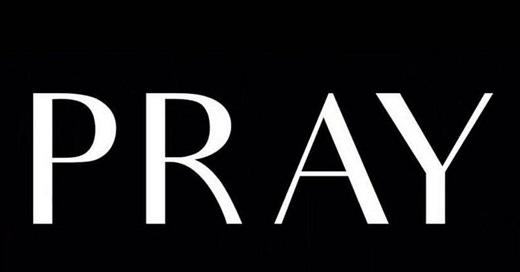Why A Day for America to Pray and Fast Should be Declared by President Trump … Prior to the 2024 Elections
What if … President Trump were to use his platform to call for a national day of prayer and fasting to petition God to forgive America its trespasses in exchange for our commitment to Him to return as a nation to an abidance with what is good and right in His eyes?
The next question would then be: would your average American patriot think such an endeavor to be important enough to set their chores and meals aside for a day and join President Trump in prayer?
And if we did the above en masse, would it be unreasonable to expect that God might be inclined to want to bless us — i.e. by showering this nation with His grace, love and mercy? And, if he did, what might that look like?
Two examples of prior Presidents who did exactly this in response to critical junctures that confronted them are provided by Jonathan Cahn in his book, The Harbinger II, that President Trump — and his supporters who hope to help him Make America Great Again — should seriously consider.
On April 30, 1863, following a series of military defeats, Abraham Lincoln led the nation in a day of prayer and fasting, by declaring, in part, the following:
“It behooves us, then, to humble ourselves before the offended Power, to confess our national sins, and to pray for clemency and forgiveness ….”
Within mere days of that national act of contrition, it can be credibly argued that the providential hand of God miraculously provided Lincoln with two separate seminal victories that effectively reversed the tides of the Civil War in Lincoln’s favor.
On May 1st — the day following Lincoln’s day of prayer — General Grant defeated the rebel forces at Port Gibson, which enabled him to subsequently emerge victorious a little over two months later at a place called Vicksburg — a strategically decisive victory that effectively divided the enemy’s armed forces and supply lines in two.
And, on May 2nd, General Lee’ most capable officer —Stonewall Jackson — was mistakenly killed by friendly fire in the battle of Chancellorsville. Importantly for Lincoln, Jackson’s death is believed to have contributed significantly to Lee’s subsequent defeat a little more than two months later at Gettysburg.
Notably, the battle of Gettysburg ended on July 3, 1863 and Vicksburg fell to the North on the following day, July 4th; two pivotal victories that came only two months after Lincoln’s day of prayer, but that ultimately enabled Lincoln to achieve his righteous goal of eliminating American slavery while also allowing the country to eventually move past the conflict as a still-united nation.
A little over a century later, another man seeking to become President came on the scene at a critical time in our nation’s history and, like Lincoln, he also called upon God to help America rechart its course away from what had become a disaster.
Keep reading with a 7-day free trial
Subscribe to The American Landscape to keep reading this post and get 7 days of free access to the full post archives.


